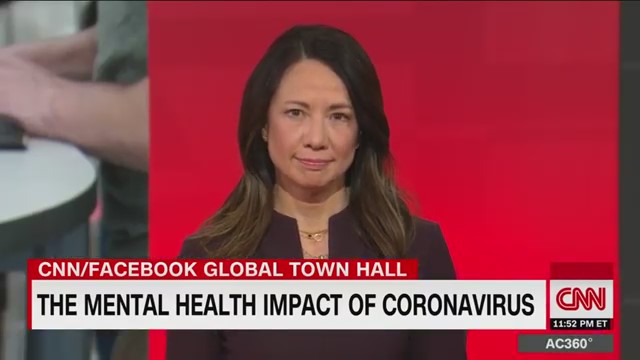Isolation checklist from the Anxiety Therapist

Attorney Michelle Reed on the benefits of preplanning. Times of uncertainty highlight opportunities that we may have otherwise not thought about.

The American Foundation for Suicide Prevention’s Chief Medical Officer, Dr. Christine Moutier, was a guest last night on a CNN special, A CNN Global Town Hall: Coronavirus Facts and Fears. Co-hosted by CNN’s Anderson Cooper and Dr. Sanjay Gupta, Dr. Moutier’s segment focused on a discussion on managing your mental health in light of recent news around the virus.
https://afsp.org/story/dr-christine-moutier-discusses-managing-your-mental-health-on-cnn-town-hall
For all members that are out in quarintine, positive or self monitoring we want to confirm you’re aware of what is available to you.
Housing: Contact Deputy Lee Alexander for child care concerns and housing options (symptomatic or non symptomatic
Self monitoring: If you’re home self monitioring you will recieve a message from the BEMS ChatBot twice daily, respond to the questions asked regarding symptoms, once you recieve the follow-up message respond via text with anything you need- peer support will recieve this directly and follow-up
Symptomatic/positive: If you’re in isolation due to being positive or symptomatic our goal is to get a care package out to you, if you allow the DICO to disclose to us, we will take care of the delivery- confidentially. The department sponsored care package includes Gatorade, tylenol, masks, hand sanitizer, thermometer, comfort snacks and cleaning supplies.
Peer support: Resources are available to all members and team clinicians are available via zoom and Doxy.me for 1 to 1 appointments. Virtual AA/NA meetings are available, the meeting numbers and zoom passwords are available in a separate post. We posted an alternative option for members wishing to speak with a non BEMS peer support clinician.
BEMSRA: BEMSRA remains available to any member in need, contact a member of the executive board if you need assistance.
Please contact me directly with any requests through any of these methods
Cell: 781-831-3223
Email: Calter@bostonems.org
ChatBot: Simply respond to the follow-up message with any needs you have

by Doreen Marshall, Ph.D.
Vice President of Mission Engagement, AFSP
Many of us are grieving right now. We are grieving people we have lost, in many instances not having had the opportunity to say goodbye or to be with them in their final moments. We are grieving not being able to have our in-person presence to support one another right now. We are grieving our rituals, our routines and the familiarity of our day-to-day assumptions. For those of us who have a history with grief (especially the unexpected kind), we may be having grief of those former losses stirred and awakened. This week alone, I had two separate dreams connected to previous losses (a death and a miscarriage). I had to remind myself when I woke that it was not those events reoccurring, but another, entirely distinct set of losses that I was currently experiencing.
Grief can be messy. It’s not linear, as in, “when I get through this particular feeling, I’m done with that.” It is cyclical and lingers around important events, words not said, certain songs, and moments captured like photographs in our minds. It is a place we can choose to visit or ignore, though it resides in the background as if waiting for us to notice.
If you are experiencing grief right now, here are some things you might remind yourself:
Please know, at this time, that others who have traveled the roads of grief are here for you and can serve as guides. Look to them for hope, healing and comfort during this difficult time, and know that days are ahead of you in which the intensity of your grief will be lessened, and replaced by loving memories.
Below are details and a link to the emotional PPE project which is an initiative by mental health clinicians nation wide to provide assistance free of charge. This is an option for anyone wishing to seek services not associated with BEMS Peer support.
The Emotional PPE Project is a directory that provides contact information of volunteer mental health practitioners to healthcare workers whose mental health has been impacted by the COVID-19 crisis.
Two types of services are offered by these mental health professionals:
1. Scheduled individual therapy sessions
2. Support groups held via group video (under development)
In addition, The Emotional PPE Project maintains a page identifying resources for those needing crisis support.